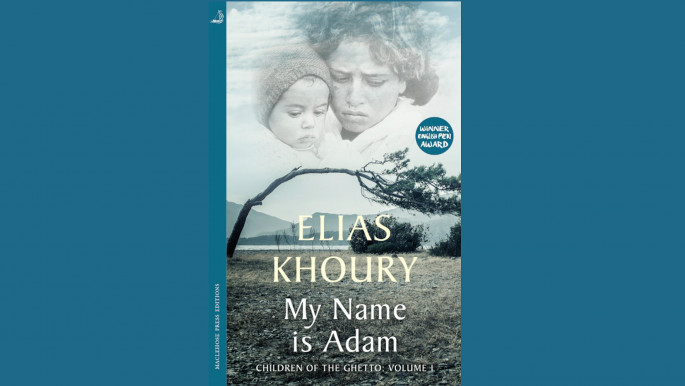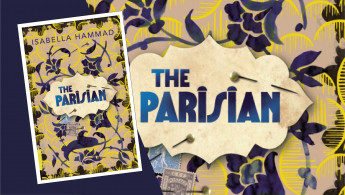The Parisian: The First World War through the eyes of a Palestinian
I suspect it's a book about white people, usually of European descent, but occasionally about Americans. And it's most likely that it'll be set in the West. You'll also probably expect to read something that involves a few scenes at war, or alternatively about the people left behind.
That's not what you'll get with Isabella Hammad's debut novel, The Parisian.
Yes, it's set partially in France during the First World War, but its central character is from Palestine. The Parisian is a book about war, yes, but it's mainly about heritage and family, as well as a look at the history of Palestine.
The novel follows Midhat Kamal, a young man who goes initially to Montpellier in France to study as a doctor. He's come via boarding school in Turkey, and soon finds himself settling into his new life, living with Docteur Molineu and his daughter Jeannette.
One can't help but think of the journeys of migrants moving from east to west at present, although their circumstances are very, very different. Hammad says that the "the drawing up of national boundaries in the Middle East by the European imperial powers have been key contributors to contemporary problems in each of the nation states the Europeans helped create".
But the novel is very much historical, and not to be seen as an allegory for today, she adds: "It would be anachronistic to apply our modern experiences onto the world of a century ago: the key political issues for the main characters in the novel are self-determination and freedom."
 |
Hammad says that the the drawing up of national boundaries in the Middle East by the European imperial powers have been key contributors to contemporary problems in each of the nation states the Europeans helped create |  |
 |
|
| Read more from The New Arab's Book Club: My Name is Adam: Tribulations of an unfinished story |
In The Parisian, Midhat associates France with learning, and although his studies have been dictated by his father, the social life and his friendships in Montpellier offer him a degree of satisfaction.
Midhat, says Hammad, is not a an immigrant, "he's a visitor, and, at least at first, he encounters France with curiosity, admiration, and only partial comprehension, much the same way a French person might have encountered an Arab country, for example".
But while Midhat believes he is an equal to the company he is keeping in France, he soon discovers something which makes him realise that they see him as less than them, and as an object of fascination rather than an equal.
"It takes him a while to understand that the French don't see him as their equal," explains Hammad. "As a narrative set before British and French colonial interests really shook up the Middle East, it was important to me to try to think what it was like for an Ottoman Arab to encounter a Western society, and to rather like it."
Midhat moves to Paris, where he continues his studies and falls into and out of meaningless sexual relationships with a number of women, while also making friends with a group of men from the Middle East who are politically active.
Hammad has drawn an incredibly vivid and realistic portrait of a young man, so it's no surprise to learn that he is inspired by a real-life person.
 |
Palestinian society was and remains complex and rich, and it deserves to be written about |  |
"The inspiration [for The Parisian] came from family stories, particularly about my father's grandfather, whose name was Midhat Kamal, and who lived in Nablus during the British Mandate period," she says. "He was known locally as "The Parisian" because of his love of France, where he had studied as a young man."
While the depiction of the First World War through the eyes of a character of colour is extraordinary – Hammad says that there "should be more stories written in or translated into English about that period from perspectives other than those of white Europeans" – it's the inclusion of Palestine as a setting that is truly remarkable.
Palestine, of course, isn't a topic that is lacking in coverage, but it is often covered in one particular way. Try and think about the last time you heard about the country, or a Palestinian, that wasn't in the context of Israel or its precarious and sad political position.
Hammad wanted to explore Palestine from a point of view rarely seen now. She says: "I wanted to explore Palestinian history before 1948. This was an educational exercise for myself apart from anything else: to learn what it was like to live there then.
"I also feel Palestinians are rarely portrayed in their own right but usually in opposition to something else, so I wanted to write about Palestinian lives in their full humanity and complexity. Palestinian society was and remains complex and rich, and it deserves to be written about."
Order your copy of The Parisian here.
Sarah Shaffi is a freelance literary journalist and editor. She writes about books for Stylist Magazine online and is books editor at Phoenix Magazine. She is a judge for the Jhalak Prize 2019. Sarah is editor-at-large at independent children's publisher Little Tiger Group. She regularly chairs author events, and is co-founder of BAME in Publishing, a networking group for people of colour in publishing.
Follow her on Twitter: @sarahshaffi



![Minnesota Tim Walz is working to court Muslim voters. [Getty]](/sites/default/files/styles/image_684x385/public/2169747529.jpeg?h=a5f2f23a&itok=b63Wif2V)






